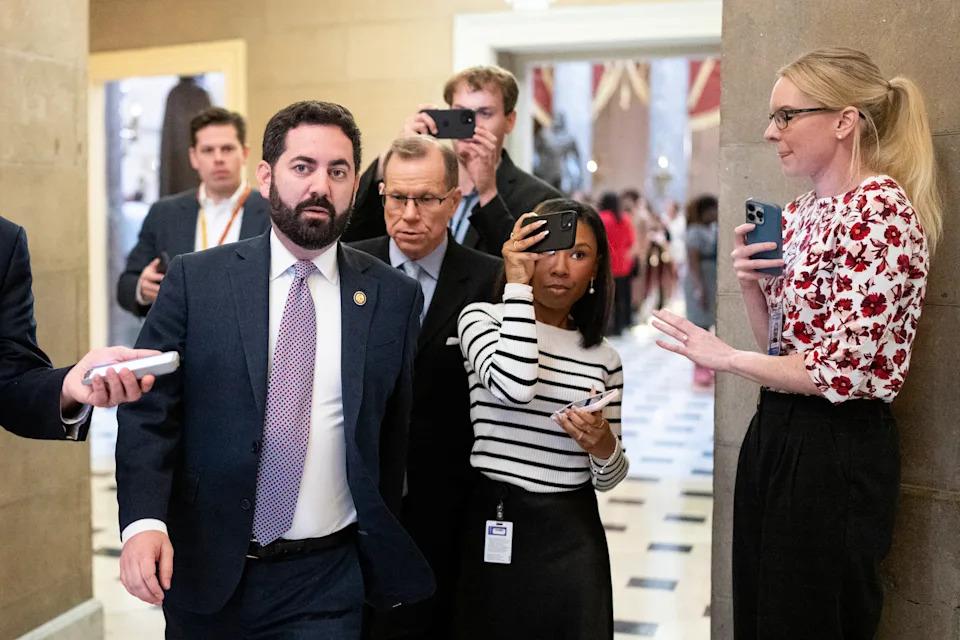News
The 3 Republican factions grinding Trump's 'big beautiful bill' to a halt — for now
Three factions of GOP lawmakers have flummoxed Republican leaders and raised serious questions this week about at least the timing of a coming vote on Trump's "big, beautiful bill."
One form of opposition is coming from blue-state Republicans who have rejected a plan to raise the deduction for state and local taxes (SALT) from $10,000 to $30,000. They want a higher credit, leading to days of tense closed-door meetings.
A second source of resistance surrounds Medicaid, as some lawmakers are wary that voting for a decrease in health care benefits, which could see millions lose coverage as a result, will backfire on Republicans.
A third set of GOP lawmakers fall into the fiscal hawk camp and say they will vote no unless varied cuts — including those on Medicaid — are made deeper to make the overall bill more fiscally responsible.
"Republicans MUST UNITE," President Trump posted Friday morning as the trio of standoffs continued, with the president again slamming "'GRANDSTANDERS' in the Republican Party."
But Trump and Republican leaders like House Speaker Mike Johnson have so far failed to move these lawmakers, with this third group of fiscal conservatives taking center stage Friday morning during a House Budget Committee gathering .
"All of us are very disappointed," Rep. Ralph Norman of South Carolina told reporters as he walked in, adding that the current bill is "smoke and mirrors."
"This bill falls profoundly short," added Rep. Chip Roy of Texas as things got underway, again vowing to vote no. Roy says the hearing should recess for now as he pushes for more cuts — and for them to kick in sooner.

The problem for Speaker Johnson is that each of the three groups holds enough votes to sink the bill, with Republicans holding a slim overall majority of 220-213 in the House of Representatives and Democrats set to vote no en masse.
The dynamic has led analysts to lower their chances of at least immediate action, with Greg Valliere at AGF Investments writing Friday morning that the bill "is in trouble" and expressing skepticism for a vote next week.
But he remains of the belief that a bill will pass the House this year, perhaps by the August break but possibly as late as December, quipping, "Why not wait until the very last minute, a rich Washington tradition?"
Henrietta Treyz of Veda Partners recently put the odds of a full House vote next week at 70%. She also assigns a 30% chance of a worst-case scenario for Republican partisans where — after a stalemate that stretches through the summer — there are "30% odds we see this bill sinking under its own weight and a short-term patch passing with bipartisan support in December 2025."
'I'm going to vote no on the bill'
Speaker Johnson has vowed to pass the bill by the Memorial Day recess and has tried to bridge the many divides this week with a series of meetings. Progress has been slow at best.
The Medicaid spending provisions are clearly the most complicated issue, generating new uproar among fiscal conservatives this week as it became clear that a series of spending cut provisions in the bill won't take effect until 2029 after Trump is scheduled to leave office.
"Spending cuts that don't kick in for 4 years seem awfully specific," Rep. Roy recently posted, adding the hashtag "#swamp."
Meanwhile, Republican defenders of Medicaid are legion, with a prominent senator saying things need to move in the opposite direction now or later this summer when it reaches the Senate.
Sen. Josh Hawley of Missouri wrote in a New York Times op-ed that Medicaid cuts will hurt the working class and that the core of the issue is "will Republicans be a majority party of working people or a permanent minority speaking only for the C-suite?"
The issue of SALT has also proven deeply divisive, with a so-called "SALTY five" Republicans pushing for a bill that could perhaps double the current plan for a $30,000 credit.
GOP New York Rep. Nick LaLota is a leader of that group and summed things up to reporters recently by saying if compromise isn't found, "I'm going to vote 'no' on the bill, and the bill likely won't pass."

The plan also would raise the nation's debt ceiling by $4 trillion — another thorny issue for markets — as Treasury Secretary Scott Bessent says America's borrowing authority is at the "warning track" and could be exhausted by August.
All in all, it's a debate with high fiscal stakes as the tax pieces of the bill alone are set to cost over $3.8 trillion if enacted as is, according to the nonpartisan Joint Committee on Taxation.
And things could become more expensive in a hurry, as further changes are possible around the SALT deduction and other issues to make things more generous.
Some of the costs will be offset, but it all could result in Congress soon moving forward with a plan with a price tag of up to $2.8 trillion in new government borrowing. Permanent implementation, added the Committee for a Responsible Federal Budget , could end up adding over $5.2 trillion to the national debt in the years ahead.
Ben Werschkul is a Washington correspondent for Yahoo Finance.

